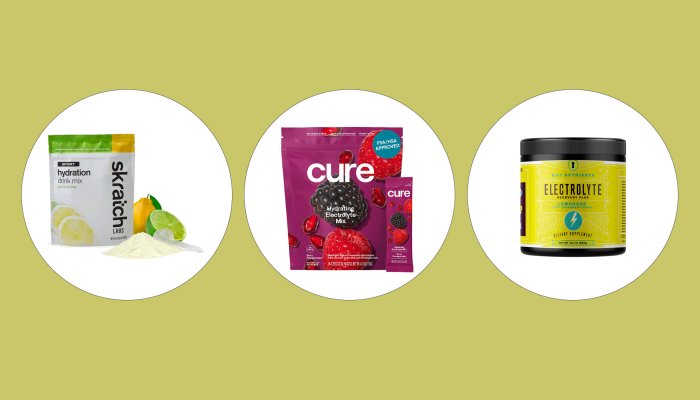

“Hydration is vitally important to your overall health,” agrees Jennifer Hankenson, M.D., Yale Medicine physical medicine and rehabilitation physician and assistant professor of orthopaedics and rehabilitation at Yale School of Medicine. In addition to water, your body needs essential minerals to regulate fluid balance and regulate cellular processes in the body. “These minerals are called electrolytes and include sodium, chloride, calcium, potassium, phosphorus, and magnesium,” Hankenson explains.
Essentially, she says, “Electrolytes work as gatekeepers that regulate cell activities such as muscle contraction, controlling pH balance and many other critical bodily functions.”
Jackie Newgent, RDN, CDN, plant-forward culinary nutritionist, adds that the human body does an amazing job of naturally regulating electrolytes—but they can get out of whack when the amount of water in your body changes. Per the U.S. National Library of Medicine, you should aim to take in the same amount of water you lose. Too little water will result in dehydration and too much, overhydration. “If you experience a more serious electrolyte imbalance, whether too low or too high, it can have potentially serious negative effects on your heartbeat, since your heart is a muscle after all,” Newgent says.
Tara Collingwood, M.S., RDN, CSSD, LD/N, ACSM-CPT, a board-certified sports dietitian, adds that electrolytes are most commonly lost through sweat, or when your fluid balance is off from other health circumstances.
In some of these cases, people may require more than just a tall glass of water. “That’s because when you’re experiencing dehydration, like from excessive sweating, it means you have an imbalance of electrolytes and body fluid, not just fluid,” Newgent explains. “Fluid-electrolyte balance is what’s important for proper hydration.”
This is where an electrolyte powder, which usually comes in individual packets ready to mix with water or another liquid, comes in. “It helps replace the electrolytes we lose,”* Collingwood confirms.








